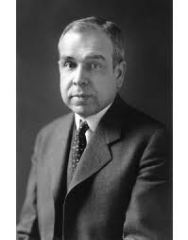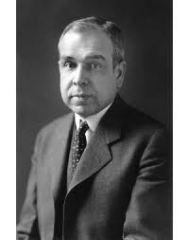“What is the duty of Christian men at such at time? What is the duty, in particular, of Christian officers in the Church?
In the first place, they should encourage those who are engaging in the intellectual and spiritual struggle. They should not say, in the sense in which some laymen say it, that more time should be devoted to the propagation of Christianity, and less to the defense of Christianity. Certainly there should be propagation of Christianity. Believers should certainly not content themselves with warding off attacks, but should also unfold in an orderly and positive way the full riches of the gospel. But far more is usually meant by those who call for less defense and more propagation. What they really intend is the discouragement of the whole intellectual defense of the faith. And their words come as a blow in the face of those who are fighting the great battle. As a matter of fact, not less time, but more time, should be devoted to the defense of the gospel. Indeed, truth cannot be stated clearly at all without being set over against error. Thus a large part of the New Testament is polemic; the enunciation of evangelical truth was occasioned by the errors which had arisen in the churches. So it will always be, on account of the fundamental laws of the human mind. Moreover, the present crisis must be taken into account. There may have been a day when there could be propagation of Christianity without defense. But such a day at any rate is past. At the present time, when the opponents of the gospel are almost in control of our churches, the slightest avoidance of the defense of the gospel is just sheer unfaithfulness to the Lord. There have been previous great crises in the history of the Church, crises almost comparable to this. One appeared in the second century, when the very life of Christendom was threatened by the Gnostics. Another came in the Middle Ages when the gospel of God’s grace seemed forgotten. In such times of crisis, God has always saved the Church. But He has always saved it not by theological pacifists, but by sturdy contenders for the truth.”
– J. Gresham Machen (1881-1937), Christianity & Liberalism, p. 146-147






